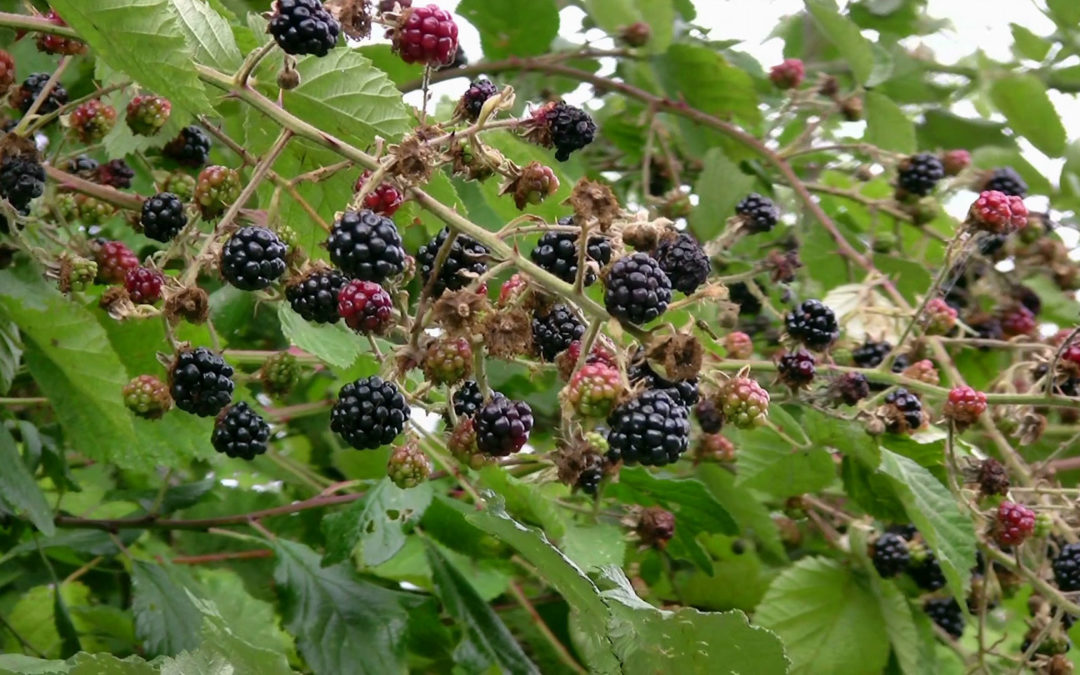Introduction
One of the biggest mistakes that people with diabetes or desiring weight loss do is stay away from fruit. While it is true that fruits contain natural sugars that have the potential to stress blood sugar control, they are also rich in fiber, antioxidants, and phytochemicals that provide considerable beneficial health effects. One of the most beneficial compounds in berries are the anthocyanins that are responsible for the red, blue, and purple hues of berries. A new study shows that black berry consumption actually improves the action of insulin and promotes the burning of fat.
Commentary:
This study dispels a common misconception about fruit consumption. That if you are overweight or have diabetes you need to avoid fruit. My recommendations with fruit consumption is to focus on low glycemic choices like berries and to limit consumption to one serving (e.g., 8 ounces of berries) for any three-hour period to avoid stressing blood sugar control. If you do those two things, fruit consumption can actually work for you, not against you.
For more information of the health benefits of flavonoids and other compounds in food, please get a copy of my book, The Magic of Food.
Reference:
Solverson PM, Rumpler WV, Leger JL, et al. Blackberry Feeding Increases Fat Oxidation and Improves Insulin Sensitivity in Overweight and Obese Males. Nutrients. 2018 Aug 9;10(8). pii: E1048. doi: 10.3390/nu10081048.
Background Data:
Previous studies examining the association between total fruit consumption, as well as the consumption of individual fruits or fruit groups, and the risk of overall mortality. There have also been studies looking at fruit consumption and the risk of type 2 diabetes. The best results have been seen in studies focusing on:
- Anthocyanin rich fruits (e.g., blueberries, dark grapes, strawberries, and apples)
- Chlorogenic acid containing fruit (prunes, peaches, plums, apricots, and apples)
- Grapefruit (due to its high content of the flavonoid naringin)
What the positive studies indicate is that specific fruit exert benefits in helping to improve blood sugar control due to the various phytochemicals they possess.
New Data:
Berries and anthocyanin supplementation have prevented obesity in rodent models. Their efficacy has been explained by other studies showing an effect on fat burning genes and the direct effects on the mitochondria that results in the burning of fat for energy.
To explore the effects of anthocyanins on energy metabolism, 27 overweight or obese men were enrolled in a randomized, placebo-controlled crossover study with two treatment periods. Subjects were fed a high-fat (40% of calories from fat) diet that also contained either 600 g/day blackberries per day providing 1500 mg/day flavonoids or a calorie and carbohydrate matched amount of gelatin as a flavonoid-free control for seven days prior to a meal-based glucose tolerance test in combination with a 24 hour stay in a room to measure calorie burning. The subjects had a washout period for seven days before being switched to the other treatment.
Results showed that the blackberry treatment resulted in a significant reduction in average 24-hour respiratory quotient a measure that indicates a preference for burning fat as an energy source. Insulin levels were also significantly lower with blackberry consumption compared to the gelatin control.
The researchers concluded blackberry feeding significantly increased the burning of fat and insulin sensitivity in overweight or obese men. This study offers translation of the anti-obesity effects of berries observed in animal models to humans.

